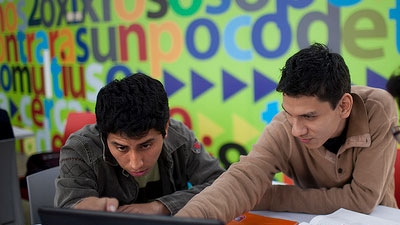In the 18 months since the World Bank announced its Open Access Policy with the launch of the Open Knowledge Repository, a transformation has taken place in the way the Bank’s published knowledge reaches the public. The frequency and volume of content being accessed doubled from one million downloads in the first year to two million in the subsequent six months. But measuring the impact goes beyond counting downloads and visits.
On Oct. 21, the World Bank and the Scholarly Publishing and Academic Resources Coalition (SPARC) will co-host the kickoff event for Open Access Week 2013, a global celebration of open access to research. The event will begin with a panel discussion on “Open Access: Redefining Impact,” at the World Bank starting at 3 p.m. ET/19:00 GMT. A webcast and live blog will be available for streaming to campuses, libraries, and organizations around the world that wish to participate. A recording will be available shortly after the event.
Heather Joseph, executive director of SPARC, will moderate a discussion with open access leaders, including Michael Stebbins, the point person for the Obama administration’s recent mandate requiring federal agencies that spend more than $100 million to develop plans to open their publicly funded research within a year of publication. Among the topics to be discussed are article-level metrics and changing the way scholarly communication is measured.
This year, major sponsors Public Library of Science (PLOS), Google, and the Wellcome Trust and 24 additional sponsors launched a new Accelerating Science Award Program (ASAP) to recognize the impact of open access research. The three ASAP winners will be announced at the kickoff event. Each will receive $30,000 for a project that has used published open access scientific research “to make a difference in science, medicine, business, technology, or society as a whole.”
Three of the six finalists submitted projects that hold great promise for the developing world:
- An innovative method for calculating the value of ecotourism to help low- and middle-income countries develop sound conservation policies for their natural resources and endangered species;
- An open-source, large-scale collaborative research model to help identify new anti-malaria drugs; and
- An HIV self-test that empowers the patient by making HIV detection simple and anonymous and alleviates fears, stigma, and discrimination of HIV testing.

